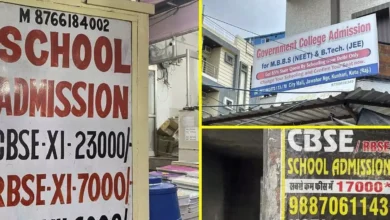President Gotabaya Rajapaksa flees Sri Lanka amid public revolt; PM declares emergency

Sri Lanka’s embattled President Gotabaya Rajapaksa on Wednesday fled to the Maldives on a military jet, hours before he was supposed to step down in the face of a public revolt against him and his family for mishandling the economy that has bankrupted the country.
Prime Minister Ranil Wickremesinghe has declared a state of emergency in the country and a curfew in the Western province has been imposed as protesters gathered near his office at Flower Road in Colombo. He has also ordered the security forces to arrest people acting in a riotous manner.
President Rajapaksa, 73, left the country along with his wife and two security officers on a military jet, a brief statement from the Sri Lanka Air Force said.
“On government request and in terms of powers available to a President under the Constitution, with complete approval from the ministry of defence, the President, his wife and two security officials were provided a Sri Lanka Air Force plane to depart from the Katunayake international airport for the Maldives in the early hours of July 13,” the statement said.
The Prime Minister’s Office also confirmed that the President had left the country.
Rajapaksa, who enjoys immunity from prosecution while he is president, fled the country before resigning to avoid the possibility of arrest by the new government.
On Saturday, Rajapaksa had announced to step down on Wednesday after thousands of protesters stormed his official residence, blaming him for the unprecedented economic crisis that has brought the country to its knees.
He arrived in the capital of the Maldives, Male, at around 03:00 local time (22:00 GMT), BBC reported.
He was received by a Maldivian government representative at the Velana airport and taken to an undisclosed location under police escort, sources said, quoting Maldivian officials.
Rajapaksa’s escape to the Maldives was negotiated by the Maldivian Majlis (Parliament) Speaker and former president Mohamed Nasheed, sources in the Maldives capital Male said.
The Maldivian government’s argument is that Rajapaksa is still the President of Sri Lanka, and that he hasn’t resigned or handed over his powers to a successor. Therefore, if he wanted to travel to the Maldives, it could not have been denied, sources said.
Thirteen people accompanied Rajapaksa to the Maldives. They arrived in an AN32 aircraft, according to TV news channels.
Reports say that initial requests to land a military aircraft in the Maldives were refused by the Civil Aviation Authority in Maldives, but later landing was authorised on the request of Speaker Nasheed.
Rajapaksa is expected to be in the Maldives on transit before flying to another destination which is yet to be known.
He is likely to send his resignation letter only after reaching his final destination on Wednesday evening, Sri Lanka’s The Morning news portal reported, citing highly placed government sources.
It is learnt that the Rajapaksa’s resignation letter would be sent to Speaker Mahinda Yapa Abeywardena at around 8 pm Sri Lanka time, it added.
Meanwhile, the High Commission of India in Sri Lanka categorically denied “baseless and speculative” media reports that it facilitated the escape of Rajapaksa to the Maldives.
“It is reiterated that India will continue to support the people of Sri Lanka as they seek to realize their aspirations for prosperity and progress through democratic means and values, established democratic institutions and constitutional framework, the India mission tweeted.
As the news of Rajapaksa’s departure spread, an enthusiastic crowd gathered in Galle Face Green chanting the popular phrase Aragalayata Jayawewa, or Victory to the struggle in Sinhalese and “Go home Gota”.
The Police fired tear gas on protesters who had gathered near the PM office. The protesters broke through a barricade despite tear gas and stormed the prime minister’s office, calling for his resignation.
Prime Minister Wickremesinghe has already said he was willing to resign and make way for an all-party government to take over.
Citing sources, BBC also reported that Rajapaksa’s younger brother and former finance minister Basil Rajapaksa has also left the country.
Basil, the 71-year-old leader who is being widely held responsible for the country’s worst economic crisis which has heaped misery on the people, is a US passport holder.
On Monday night, both Rajapaksa and his brother Basil were turned back at the Colombo airport as they attempted to leave the country amid mounting anger against the powerful family for mishandling the island’s worst economic crisis.
Basil resigned as finance minister in early April as street protests intensified against shortages of fuel, food and other necessities and quit his seat in parliament in June.
Sri Lanka’s political parties have stepped up efforts to form an all-party government and subsequently elect a new President on July 20 to prevent the bankrupt nation sliding further into anarchy.
A meeting was held early this week between the main opposition Samagi Jana Balavegaya (SJB) and former president Maithripala Sirisena’s Sri Lanka Freedom Party (SLFP).
Parties have begun campaigning for the support of possible candidates. The SJB said they will campaign for the appointment of Sajith Premadasa as the interim President.
Premadasa said on Monday that his party was ready to lead the country at the presidential and prime ministerial level and develop the economy.
Under the Sri Lankan Constitution, if both the president and prime minister resign, the Speaker of parliament will serve as acting president for a maximum of 30 days.
The Parliament will elect a new president within 30 days from one of its members, who will hold the office for the remaining two years of the current term.
The political uncertainty prevails in Sri Lanka where the distribution of cooking gas has resumed alongside the delivery of fuel to retailers by the Indian Oil Company after a stoppage on Sunday. Long queues are still seen at fuel pumps.
The protesters continue to occupy the three main buildings in the capital, the President’s House, the presidential secretariat and the prime minister’s official residence, Temple Trees, calling for their resignations.
Sri Lanka, a country of 22 million people, is under the grip of an unprecedented economic turmoil, the worst in seven decades, leaving millions struggling to buy food, medicine, fuel and other essentials. Prime Minister Wickremesinghe last week said Sri Lanka is now a bankrupt country.




